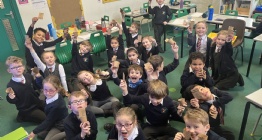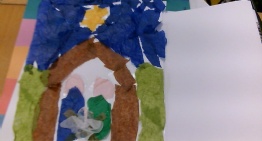Friday 28th March 2025
Spellings:
Next week is a review and consolidation week of all the spelling rules we have looked at this half term.
Adverbs
quickly, slowly, rudely, happily, lazily, horribly,
Irregular Plural Nouns
apple, benches, lashes, peaches, foxes, shelves
people, feet, sheep, teeth, women, children
Comparing j/d/ge/dge
jungle, bridge, edge, large, badger, hedgehog, intelligent
Comparing c/se/ce
ice, city, nice, fence, sense, once, rice, spicy
Reading:
Please read daily with your adult and log it on Boom Reader.
You can read your 'Anna's Homework' book, your banded book or a book from home.
Maths:
Please practice Numbots/TT Rockstars for 45 minutes weekly.
You can also practise your 2, 5 and 10x tables on Topmarks - Hit the Button Game
https://www.topmarks.co.uk/maths-games/hit-the-button
Wow, is it really Friday again? We're not sure where the time is going at the moment but the children are continuing to work so hard.
Wyatt, Harriet and lots of the children have enjoyed Art this week where we have been learning how to draw a self portrait, including thinking about the proportions of our faces, where our body parts are and looking in detail at the features of our faces that help us to identify ourselves. George loved the gallery walk where we got to see everyone's finished portraits.
Heidi and Bode enjoyed Science this week where we learned about animals and how they adapt to suit their environment. This is called adaptation! The children knew loads of facts about a range of different animals and we even played a game where we had to memorise facts about camels and how they adapt to live in the desert - the children could remember lots of information!
Myra and Lennon loved our Englishh lesson on Thursday where we looked at a range of vocabulary to describe Rapunzel and we decided how relevant each word was to the character in the story.
Albert and loads of the children in the class loved making a potion on the field where we looked at how to describe the bubbling potions with a range of interesting ingredients inside!
Abby loved our Maths learning this week where we have continued to look at fractions, including recognising and finding 3/4 of shapes and amounts, and counting fractions to make one whole.
Caelan loved learning more about the Easter story and the days of Holy Week.
Have a lovely weekend!
Miss Freeman and the Year 2 Team




